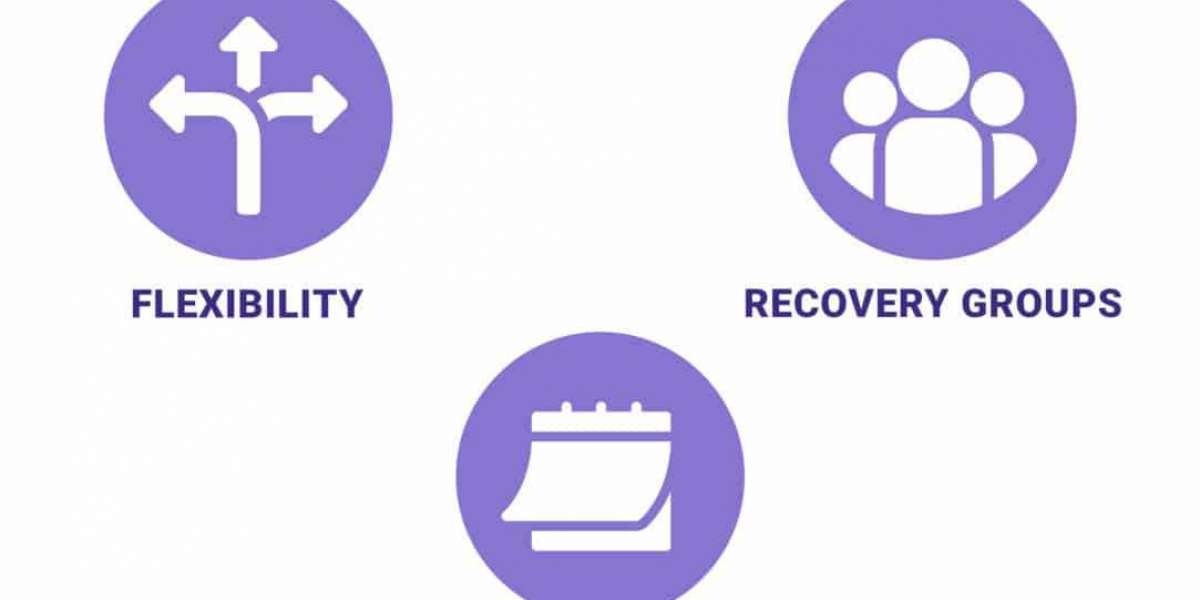Intensive Outpatient Treatment is a non-residential psychological treatment program that addresses mental health disorders. It is less demanding than inpatient treatment and can be much less expensive. It is also a structured treatment program that focuses on the recovery of individuals, families, and groups.
Group therapy
Intensive outpatient treatment is an important part of the healing process for addiction. This type of program provides an extra layer of accountability as clients learn to maintain sobriety. Intensive outpatient treatment programs may include medical detox, vocational training, and physical fitness programs. The length of treatment will vary depending on the client's needs.
Group therapy is the primary social component of IOP. Group sessions focus on integrating new life skills and coping strategies. Members of the group examine how thoughts, emotions, and behaviors contribute to a satisfying lifestyle. They also learn relapse prevention techniques.
Group therapy sessions generally follow a standard format. They are typically co-led by two counselors. They use written materials, lectures, and videos. The first hour of the session is structured. The second hour is more open. It allows the group to explore issues that have been identified during the first session. The third hour is tailored to the interests of the group.
Individual therapy
Intensive outpatient treatment can be a powerful tool in the early stages of recovery. It can help individuals gain confidence in their sobriety and learn the coping skills to help them succeed in sobriety. It can also help to build up social networks that can help clients stay sober.
One of the most important aspects of an IOP program is a good clinician. This person can ensure that the clients in the group are safe and that everyone is engaged. The clinician can also set boundaries and limits so that the group is not dominated by clients who are not doing their part to stay sober.
The IOP may also be home to a wide range of activities and programs, including group therapy, ambulatory detoxification, vocational training, and other specialized services. It may also include nutrition and physical fitness services. The best IOP services are therapeutic-based treatment plans that are designed to meet individual needs.
Multi-family therapy
Intensive outpatient treatment (IOP) for adolescents can include multi-family group therapy sessions. In addition to helping the teen to learn and grow, this therapy can also help the family learn how to support the teen and improve communication. Typically, families will be expected to prepare food for meals and bring them to the sessions.
The Multi-Family Group Therapy program was developed to accommodate the need for family members to participate in treatment. The program was initially designed for young women with anorexia, but it has since been extended to families of adolescents with other mental health issues.
Multi-family therapy helps families learn about their own issues and also helps them to better understand the issues of others. Families can also share tips and advice to help others. These sessions can also help families feel less alone, which can be a helpful step towards recovery.
Less demanding than inpatient treatment
Intensive outpatient treatment is less demanding than inpatient treatment, but not all patients can or should benefit from it. This type of treatment can help individuals recover from substance abuse, depression, and other mental health issues.
Intensive outpatient programs are generally offered for about two to three months. The duration can vary depending on the treatment provider, but patients should expect to be in therapy for at least nine hours a week.
One of the most important techniques in intensive outpatient programs is one-to-one therapy sessions. During these sessions, a therapist will work with the client to address their symptoms. As the client improves, they may require fewer sessions. In addition to one-on-one sessions, IOPs also include group therapy and support groups.
Intensive outpatient programs are designed to help individuals return to their normal lives. They are also designed to help individuals cope with relapse. The treatment is designed to fit the needs of the client. In addition to treatment, the client may participate in family therapy sessions, medical appointments, and employment counseling.
Cost
Intensive outpatient treatment programs (IOP) can be an effective way to overcome addiction. These programs offer trained professionals who provide therapy, medication, and support to patients. These programs may help patients to regain control of their lives, learn emotional regulation, and form connections with others. They also give patients the opportunity to build relationships and learn job skills.
IOPs are less expensive than inpatient rehabs, which can cost hundreds of dollars a day. Intensive outpatient treatment programs are designed to help recovering addicts reintegrate into society.
IOPs typically involve nine hours of therapy per week. They may also involve directed support groups. These programs may also offer medication-assisted treatments to help patients cope with withdrawal symptoms and dependence.
The cost of intensive outpatient treatment programs can vary depending on the facility and services offered. Private rehab centers may charge more than publically funded long-term treatment centers. However, some IOPs offer free programs through the National Health Service (NHS).
An intensive outpatient treatment program can be a valuable asset to individuals who do not need to be in a residential facility. These programs can also be useful to patients who have co-occurring disorders, such as depression.








